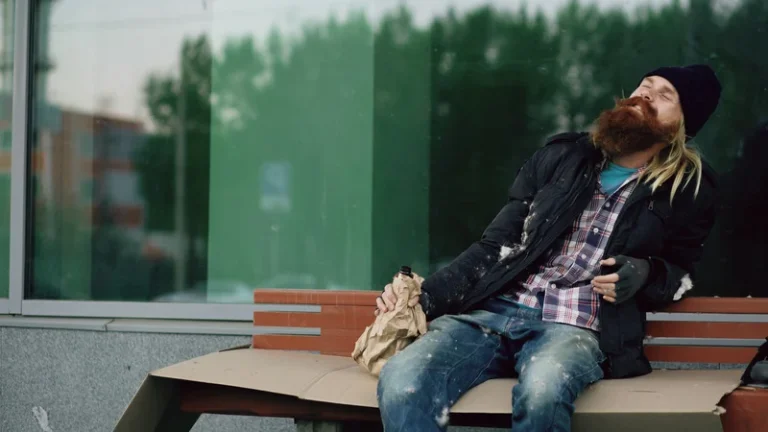Generally, a limited partner’s share of partnership income (loss) isn’t included in net earnings (loss) from self-employment. Limited partners treat as self-employment earnings only guaranteed payments for services they actually rendered to, or on behalf of, the partnership to the extent that those payments are payment for those services. There’s a higher dollar limitation for productions in certain areas. Provide a description of the film, television, or live theatrical production on an attached statement. If the partnership makes the election for more than one film, television, or live theatrical production, attach a statement to Schedule K-1 that shows each partner’s distributive share of the qualified expenditures separately for each production. The deduction is subject to recapture under section 1245 if the election is voluntarily revoked or the production fails to meet the requirements for the deduction.
Lessors of Nonfinancial Intangible Assets (except copyrighted works)
If there was a gain (loss) from a casualty or theft to property not used in a trade or business or for income-producing purposes, notify the partner. The partnership shouldn’t complete Form 4684 for this type of casualty or theft. Report each partner’s distributive share of net section 1231 gain (loss) in box 10 of Schedule K-1. If the partnership has more than one rental, trade, or business activity, identify on an attached statement to Schedule K-1 the amount of section 1231 gain (loss) from each separate activity. Also, include gain (but not loss) from the sale or exchange of an interest in a partnership or trust held for more than 1 year and attributable to unrealized appreciation of collectibles. Also attach the statement required under Regulations section 1.1(h)-1(e).
Change of tax year.
- In classifying partners who are individuals as active or passive, the partnership should apply the rules below.
- Except as provided below, every domestic partnership must file Form 1065, unless it neither receives income nor incurs any expenditures treated as deductions or credits for federal income tax purposes.
- The partner will enter the amount in Form 8990, Schedule A, line 43, column (f), if the partner is required to file Form 8990.
- However, a foreign eligible entity with at least two members is classified under the default rules as a partnership only if the entity doesn’t provide limited liability to at least one member.
- These credits may include any type of credit listed in the instructions for line 15f.
- Also, special rules apply to deductions for gifts, luxury water travel, and convention expenses.
- Accurate reporting in this section is critical, as it serves as the foundation for determining taxable income.
If the amended return or AAR won’t be filed electronically, complete Form 1065-X, Amended Return or Administrative Adjustment Request (AAR), to file the amended return or AAR. See Form 1065-X and its separate instructions for information on completing and filing the form. If the partnership has an IU, the partnership may elect to have its partners take the adjustments into account instead of paying the IU.
Line 6. Net Gain (Loss) From Form 4797
The amount determined by the partnership based on its annual PTEP accounts in determining the amount on line 6a doesn’t include the amount by which distributions are attributable to PTEP in annual PTEP accounts of a direct or indirect partner. An item is specially allocated if it’s allocated to a partner in a ratio different from the ratio for sharing income or loss generally. Answer “Yes” if the partnership is making, or has made (and hasn’t revoked), a section 754 election. For information about the election, see item 4 under Elections Made by the Partnership , earlier.
Partnerships must provide a detailed breakdown of these income streams and account for returns and allowances, which are subtracted from gross receipts to calculate net sales. Accurate reporting in this section is critical, as it serves as the foundation for determining taxable income. Partnerships should ensure all income is reported in compliance with tax laws and accounting standards. Partnerships and LLCs are pass-through entities, where any profits or losses pass directly to the partners or LLC members. Individual partners report and pay taxes on their share of the business income on their personal tax returns using Schedule K-1 and then file this form with their personal tax returns, IRS Form 1040. The partnership or LLC then files a single IRS Form 1065, but the business does not pay the income tax.
However, if a partner is an IRA, enter the identifying number of the custodian of the IRA. Don’t enter the identification number of the person for whom the IRA is maintained. If the partnership reports unrelated business taxable income (UBTI) to such IRA partner, include the IRA partner’s unique EIN in box 20, code AR, along with the amount of such income. A partnership that is a section 721(c) partnership will also attach to its Form 1065 a Schedule K-1 for each partner that is a related foreign person with respect to the U.S. transferor. For an indirect partner that is a related foreign person with respect to the U.S. transferor, the Schedule K-1 will only include relevant information with respect to section 721(c) property.
Activities That Aren’t Passive Activities
- They also have a good record of fulfilling their tax obligations and complying with the IRS guidelines.
- The limitation on BIE applies to every taxpayer with a trade or business, unless the taxpayer meets certain specified exceptions.
- If the partnership holds a direct or indirect interest in an RPE that aggregates multiple trades or businesses, the partnership must also include a copy of the RPE’s aggregations with each partner’s Schedule K-1.
- For more information, see section 163(j) and the Instructions for Form 8990.
- The uniform capitalization rules of section 263A generally require partnerships to capitalize certain costs incurred in connection with the following.
- You can also get your bookkeeping and taxes all handled by Bench.
Always try to resolve your problem with the IRS first, but if you can’t, then come to TAS. Additional information under Contributions of property is being provided as it relates to Treasury Decision (T.D.) 9999 and section 170(h)(7). If you’ve received a Schedule K-1 (Form 1065, 1120-S, or 1041), you might be wondering what it means and how it impacts your taxes. This guide will help you understand the basics of Schedule K-1 and how to read it effectively. File by the 15th day of the third month after your tax year ends. Use the next business day if the due date falls on a weekend or legal holiday.
Include what is a 1065 form on this line loans from partners or persons related to partners. Persons are related if they have a relationship specified in section 267(b) or 707(b). Amounts included here shouldn’t be included elsewhere on lines 15 through 21.
Electing Out of the Centralized Partnership Audit Regime
Otherwise, answer “No” for question 16a and skip question 16b. See Am I Required to File a Form 1099 or Other Information Return for more information. Partnership P converts its title to the land to fractional interests in the name of the partners and distributes such interests to its partners.



